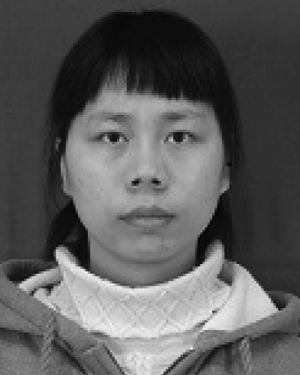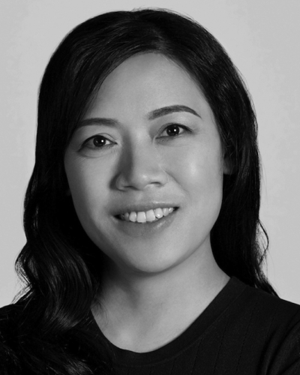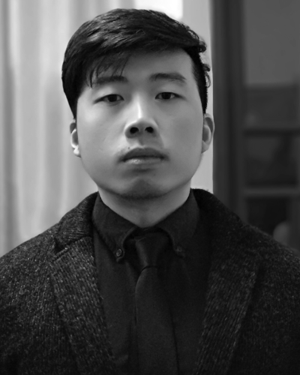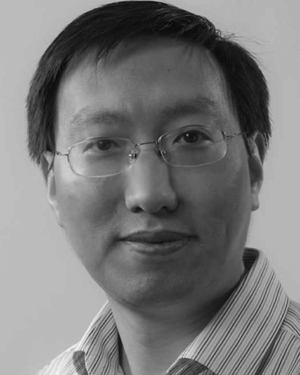Abstract:
In reality, individuals will spread their opinions by word of mouth, meanwhile sharing their opinions on social platforms. To gain a clear insight into this kind of behav...Show MoreMetadata
Abstract:
In reality, individuals will spread their opinions by word of mouth, meanwhile sharing their opinions on social platforms. To gain a clear insight into this kind of behavior, we propose a diffusion model of various opinions in a two-layer interconnected network using some statistical characteristics of network structures. Theoretical analysis reveals that the final fraction of any opinion in one layer will get identical to that of the same opinion in the other layer. In particular, when the seed fraction of an opinion in one layer is different from that in the other layer, the diffusion behavior and final prevalence of opinions not only rely on the seed fractions of opinions, but also depend on the attributes of individuals that are active on different layers, including their inter-layer linking patterns and linking number. Further analysis shows that mass media will promote the spread of the opinion that is in accordance with its own. Finally, we illustrate the effectiveness of analytical results by simulating the spread of two opinions under four inter-layer linking patterns on three types of two-layer interconnected networks. The findings throw new light on some interesting phenomena in society, and facilitate decision-makers to orientate the prevalence of a special product.
Published in: IEEE Transactions on Circuits and Systems I: Regular Papers ( Volume: 68, Issue: 9, September 2021)
Funding Agency:

School of Mathematics and Statistics, Wuhan University, Hubei, China
School of Mathematics and Statistics, Jiangsu Normal University, Jiangsu, China
Congying Liu received the B.Sc. degree in mathematics and applied mathematics from China Three Gorges University, Yichang, China, in 2014, the M.Sc. degree in applied mathematics from Northeast Forestry University, Harbin, China, in 2017, and the Ph.D. degree from the School of Mathematics and Statistics, Wuhan University. Her current research interests include nonlinear dynamics and complex networks.
Congying Liu received the B.Sc. degree in mathematics and applied mathematics from China Three Gorges University, Yichang, China, in 2014, the M.Sc. degree in applied mathematics from Northeast Forestry University, Harbin, China, in 2017, and the Ph.D. degree from the School of Mathematics and Statistics, Wuhan University. Her current research interests include nonlinear dynamics and complex networks.View more

School of Mathematics and Statistics, Wuhan University, Hubei, China
Xiaoqun Wu received the B.Sc. degree in applied mathematics and the Ph.D. degree in computational mathematics from Wuhan University, Wuhan, China, in 2000 and 2005, respectively.
She is currently a Professor with the School of Mathematics and Statistics, Wuhan University. She held several visiting positions in Hong Kong, Australia, and America over the last few years. Her current research interests include complex networks...Show More
Xiaoqun Wu received the B.Sc. degree in applied mathematics and the Ph.D. degree in computational mathematics from Wuhan University, Wuhan, China, in 2000 and 2005, respectively.
She is currently a Professor with the School of Mathematics and Statistics, Wuhan University. She held several visiting positions in Hong Kong, Australia, and America over the last few years. Her current research interests include complex networks...View more

College of Mathematics and Statistics, Shenzhen University, Shenzhen, China
Ruiwu Niu received the B.Sc. and M.Sc. degrees in theoretical physics from Hubei University, Wuhan, China, in 2012 and 2016 respectively, and the Ph.D. degree from the School of Mathematics and Statistics, Wuhan University, Wuhan, in 2019. His current research interests include nonlinear dynamics and complex networks.
Ruiwu Niu received the B.Sc. and M.Sc. degrees in theoretical physics from Hubei University, Wuhan, China, in 2012 and 2016 respectively, and the Ph.D. degree from the School of Mathematics and Statistics, Wuhan University, Wuhan, in 2019. His current research interests include nonlinear dynamics and complex networks.View more

Faculty of Science and Technology, LeHavre Normandie University, Le Havre, France
M. A. Aziz-Alaoui received the Ph.D. degree in applied mathematics from the University of Nice Sophia Antipolis, France, in 1987 and the Habilitation (HDR) degree from LeHavre Normadie University in 2001.
He is currently a Full Professor of applied mathematics with the Faculty of Sciences and Technology, LeHavre Normadie University. He has authored more than 100 SCI journal articles published in the fields of nonlinear dyn...Show More
M. A. Aziz-Alaoui received the Ph.D. degree in applied mathematics from the University of Nice Sophia Antipolis, France, in 1987 and the Habilitation (HDR) degree from LeHavre Normadie University in 2001.
He is currently a Full Professor of applied mathematics with the Faculty of Sciences and Technology, LeHavre Normadie University. He has authored more than 100 SCI journal articles published in the fields of nonlinear dyn...View more

School of Automation Science and Electrical Engineering, State Key Laboratory of Software Development Environment, and the Beijing Advanced Innovation Center for Big Data and Brain Computing, Beihang University, Beijing, China
Jinhu Lü (Fellow, IEEE) received the Ph.D. degree in applied mathematics from the Academy of Mathematics and Systems Science, Chinese Academy of Sciences, Beijing, China, in 2002.
He was a Professor with RMIT University, Melbourne, VIC, Australia, and a Visiting Fellow with Princeton University, Princeton, NJ, USA. He is currently the Dean of the School of Automation Science and Electrical Engineering, Beihang University, ...Show More
Jinhu Lü (Fellow, IEEE) received the Ph.D. degree in applied mathematics from the Academy of Mathematics and Systems Science, Chinese Academy of Sciences, Beijing, China, in 2002.
He was a Professor with RMIT University, Melbourne, VIC, Australia, and a Visiting Fellow with Princeton University, Princeton, NJ, USA. He is currently the Dean of the School of Automation Science and Electrical Engineering, Beihang University, ...View more

School of Mathematics and Statistics, Wuhan University, Hubei, China
School of Mathematics and Statistics, Jiangsu Normal University, Jiangsu, China
Congying Liu received the B.Sc. degree in mathematics and applied mathematics from China Three Gorges University, Yichang, China, in 2014, the M.Sc. degree in applied mathematics from Northeast Forestry University, Harbin, China, in 2017, and the Ph.D. degree from the School of Mathematics and Statistics, Wuhan University. Her current research interests include nonlinear dynamics and complex networks.
Congying Liu received the B.Sc. degree in mathematics and applied mathematics from China Three Gorges University, Yichang, China, in 2014, the M.Sc. degree in applied mathematics from Northeast Forestry University, Harbin, China, in 2017, and the Ph.D. degree from the School of Mathematics and Statistics, Wuhan University. Her current research interests include nonlinear dynamics and complex networks.View more

School of Mathematics and Statistics, Wuhan University, Hubei, China
Xiaoqun Wu received the B.Sc. degree in applied mathematics and the Ph.D. degree in computational mathematics from Wuhan University, Wuhan, China, in 2000 and 2005, respectively.
She is currently a Professor with the School of Mathematics and Statistics, Wuhan University. She held several visiting positions in Hong Kong, Australia, and America over the last few years. Her current research interests include complex networks, nonlinear dynamics, and chaos control. She has published more than 60 SCI journal articles in the above areas.
Prof. Wu was a recipient of the Second Prize of the Natural Science Award from the Hubei, China, in 2006, the First Prize of the Natural Science Award from the Ministry of Education of China in 2007, and the First Prize of the Natural Science Award from the Hubei, in 2013. In 2017, she was awarded the 14th Chinese Young Women Scientists Fellowship and the Natural Science Fund for Distinguished Young Scholars of Hubei Province. She is serving as an Associate Editor for IEEE Transactions on Circuits and Systems—II: Express Briefs.
Xiaoqun Wu received the B.Sc. degree in applied mathematics and the Ph.D. degree in computational mathematics from Wuhan University, Wuhan, China, in 2000 and 2005, respectively.
She is currently a Professor with the School of Mathematics and Statistics, Wuhan University. She held several visiting positions in Hong Kong, Australia, and America over the last few years. Her current research interests include complex networks, nonlinear dynamics, and chaos control. She has published more than 60 SCI journal articles in the above areas.
Prof. Wu was a recipient of the Second Prize of the Natural Science Award from the Hubei, China, in 2006, the First Prize of the Natural Science Award from the Ministry of Education of China in 2007, and the First Prize of the Natural Science Award from the Hubei, in 2013. In 2017, she was awarded the 14th Chinese Young Women Scientists Fellowship and the Natural Science Fund for Distinguished Young Scholars of Hubei Province. She is serving as an Associate Editor for IEEE Transactions on Circuits and Systems—II: Express Briefs.View more

College of Mathematics and Statistics, Shenzhen University, Shenzhen, China
Ruiwu Niu received the B.Sc. and M.Sc. degrees in theoretical physics from Hubei University, Wuhan, China, in 2012 and 2016 respectively, and the Ph.D. degree from the School of Mathematics and Statistics, Wuhan University, Wuhan, in 2019. His current research interests include nonlinear dynamics and complex networks.
Ruiwu Niu received the B.Sc. and M.Sc. degrees in theoretical physics from Hubei University, Wuhan, China, in 2012 and 2016 respectively, and the Ph.D. degree from the School of Mathematics and Statistics, Wuhan University, Wuhan, in 2019. His current research interests include nonlinear dynamics and complex networks.View more

Faculty of Science and Technology, LeHavre Normandie University, Le Havre, France
M. A. Aziz-Alaoui received the Ph.D. degree in applied mathematics from the University of Nice Sophia Antipolis, France, in 1987 and the Habilitation (HDR) degree from LeHavre Normadie University in 2001.
He is currently a Full Professor of applied mathematics with the Faculty of Sciences and Technology, LeHavre Normadie University. He has authored more than 100 SCI journal articles published in the fields of nonlinear dynamical systems, complex networks, and complex systems. His research interests include nonlinear dynamical systems, complex systems, and complex networks, with various applications. He was a Visiting Fellow or Visiting Professor with many universities, such as Wuhan University, China, University of Waterloo, Canada, and Chaos Group, Maryland University. He is serving as an Associate Editor for numerous international journals, such as International Journal of Bifurcation and Chaos and The Journal of Nonlinear Science and Applications.
M. A. Aziz-Alaoui received the Ph.D. degree in applied mathematics from the University of Nice Sophia Antipolis, France, in 1987 and the Habilitation (HDR) degree from LeHavre Normadie University in 2001.
He is currently a Full Professor of applied mathematics with the Faculty of Sciences and Technology, LeHavre Normadie University. He has authored more than 100 SCI journal articles published in the fields of nonlinear dynamical systems, complex networks, and complex systems. His research interests include nonlinear dynamical systems, complex systems, and complex networks, with various applications. He was a Visiting Fellow or Visiting Professor with many universities, such as Wuhan University, China, University of Waterloo, Canada, and Chaos Group, Maryland University. He is serving as an Associate Editor for numerous international journals, such as International Journal of Bifurcation and Chaos and The Journal of Nonlinear Science and Applications.View more

School of Automation Science and Electrical Engineering, State Key Laboratory of Software Development Environment, and the Beijing Advanced Innovation Center for Big Data and Brain Computing, Beihang University, Beijing, China
Jinhu Lü (Fellow, IEEE) received the Ph.D. degree in applied mathematics from the Academy of Mathematics and Systems Science, Chinese Academy of Sciences, Beijing, China, in 2002.
He was a Professor with RMIT University, Melbourne, VIC, Australia, and a Visiting Fellow with Princeton University, Princeton, NJ, USA. He is currently the Dean of the School of Automation Science and Electrical Engineering, Beihang University, Beijing. He is the Chief Scientist of the National Key Research and Development Program of China and a Leading Scientist of the Innovative Research Groups, National Natural Science Foundation of China. His current research interests include nonlinear circuits and systems, complex networks, multiagent systems, and big data.
Dr. Lü was a member of the Evaluating Committees of the IEEE Circuits and Systems Society, the IEEE Industrial Electronics Society, and the IEEE Computational Intelligence Society. He was a recipient of the State Natural Science Award thrice from the Chinese Government in 2008, 2012, and 2016, respectively, the Australian Research Council Future Fellowships Award in 2009, the National Natural Science Fund for Distinguished Young Scholars, and the Prestigious Ho Leung Ho Lee Foundation Award in 2015, a Leading Scientist of the Ten Thousand Talents Program of China, and the Highly Cited Researcher Award in engineering from 2014 to 2018. He was the General Co-Chair of the 43rd Annual Conference of the IEEE Industrial Electronics Society in 2017. He was an Editor in various ranks for 15 SCI journals, including the Co-Editor-in-Chief of the IEEE Transactions on Industrial Informatics.
Jinhu Lü (Fellow, IEEE) received the Ph.D. degree in applied mathematics from the Academy of Mathematics and Systems Science, Chinese Academy of Sciences, Beijing, China, in 2002.
He was a Professor with RMIT University, Melbourne, VIC, Australia, and a Visiting Fellow with Princeton University, Princeton, NJ, USA. He is currently the Dean of the School of Automation Science and Electrical Engineering, Beihang University, Beijing. He is the Chief Scientist of the National Key Research and Development Program of China and a Leading Scientist of the Innovative Research Groups, National Natural Science Foundation of China. His current research interests include nonlinear circuits and systems, complex networks, multiagent systems, and big data.
Dr. Lü was a member of the Evaluating Committees of the IEEE Circuits and Systems Society, the IEEE Industrial Electronics Society, and the IEEE Computational Intelligence Society. He was a recipient of the State Natural Science Award thrice from the Chinese Government in 2008, 2012, and 2016, respectively, the Australian Research Council Future Fellowships Award in 2009, the National Natural Science Fund for Distinguished Young Scholars, and the Prestigious Ho Leung Ho Lee Foundation Award in 2015, a Leading Scientist of the Ten Thousand Talents Program of China, and the Highly Cited Researcher Award in engineering from 2014 to 2018. He was the General Co-Chair of the 43rd Annual Conference of the IEEE Industrial Electronics Society in 2017. He was an Editor in various ranks for 15 SCI journals, including the Co-Editor-in-Chief of the IEEE Transactions on Industrial Informatics.View more


